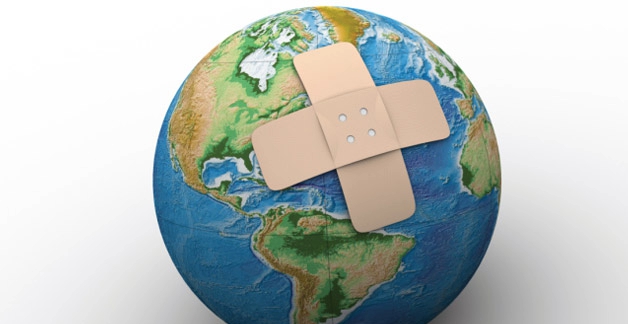Professor Fiona Stanley is asking medical colleagues to use their influence to fight climate change
Celebrated epidemiologist Professor Fiona Stanley is asking medical colleagues to use their influence to fight climate change on health grounds.
The 2003 Australian of the Year this week wrote to all major-party candidates in the 2 July election calling for their responses on four key proposals to avoid the devastating impacts of unsustainable environmental practices.
“I am anguished because this isn’t more on the agenda in this election,” Professor Stanley told The Medical Republic in an interview.
“I know there is an increasing proportion of Australians who are worried about it. But the time (to act) is now. We need it now. This is the critical decade.”
Professor Stanley, known for her work in child and maternal health and for making the link between folate levels and spina bifida, likened inaction on climate to a failure to address the causes of disease.
“If you look at everything that is affecting our society now, we are intervening too late, too little, in irreversible pathways,” she said, giving the example of renal disease among indigenous people.
“We put renal dialysis in Aboriginal communities, and I strongly support it. It’s not going to reduce renal disease; it’s going to increase it as you are keeping people alive. But why not look at what’s causing renal disease and put your money there?
“My anguish is that people do not seem to understand that the best way to handle these myriad problems is to look at why they are happening and intervene much earlier.”
Professor Stanley, said doctors were already seeing impacts from global warming in medical practice and would see more in the future.
“To the medical profession, I want to say: You are powerful, and you are going to have to cope with the health effects of the changes to our environment such as heatwaves and extreme weather conditions.”
As a priority, doctors should use their clout to lobby for a phasing out of fossil fuels with a shift to renewable energy, she said. Next, they should advocate for a national strategy for adaptation and mitigation of climate-change effects.
“In a way, I wish they didn’t call it climate change. Climate change is one outcome of the way we are living on the planet in an unsustainable way,” she said.
Professor Stanley said she found it frustrating to see threats to health go unaddressed because policy makers were stuck in an old mindset regarding fossil fuels and unsustainable practices.
So far, her letter has had support from Greens candidates, independents and smaller parties, but no replies from the Coalition and only a few from Labor. The responses will be circulated to the AMA and other medical groups.
The letter asks politicians to support the “no” case for new coal mines and mine expansions, and the removal of tax rebates worth more than $7 billion for fossil fuel industries, saying the rebates are the equivalent of subsidising tobacco.
It also seeks support for a transition to renewable energy sources.
“Coal is enormously damaging, but we never count the costs of the health effects and the other effects of coal mining,” Professor Stanley said.“We don’t want to do people out of jobs – and do India out of power – we want to leapfrog into what is now extremely cost-effective renewable energy.”


